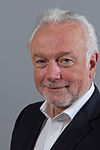| |||||||||||||||||||||||||||||||||||||||||||||||||||||||||||||||||||||||||||||||||||||||||||||||||||||||||||||||||||||||
All 73 seats in the Landtag of Schleswig-Holstein 37 seats needed for a majority | |||||||||||||||||||||||||||||||||||||||||||||||||||||||||||||||||||||||||||||||||||||||||||||||||||||||||||||||||||||||
|---|---|---|---|---|---|---|---|---|---|---|---|---|---|---|---|---|---|---|---|---|---|---|---|---|---|---|---|---|---|---|---|---|---|---|---|---|---|---|---|---|---|---|---|---|---|---|---|---|---|---|---|---|---|---|---|---|---|---|---|---|---|---|---|---|---|---|---|---|---|---|---|---|---|---|---|---|---|---|---|---|---|---|---|---|---|---|---|---|---|---|---|---|---|---|---|---|---|---|---|---|---|---|---|---|---|---|---|---|---|---|---|---|---|---|---|---|---|---|---|
| Turnout | 1,474,508 (64.2%) | ||||||||||||||||||||||||||||||||||||||||||||||||||||||||||||||||||||||||||||||||||||||||||||||||||||||||||||||||||||||
| |||||||||||||||||||||||||||||||||||||||||||||||||||||||||||||||||||||||||||||||||||||||||||||||||||||||||||||||||||||||
 Results for the single-member constituencies | |||||||||||||||||||||||||||||||||||||||||||||||||||||||||||||||||||||||||||||||||||||||||||||||||||||||||||||||||||||||
| |||||||||||||||||||||||||||||||||||||||||||||||||||||||||||||||||||||||||||||||||||||||||||||||||||||||||||||||||||||||
The 2017 Schleswig-Holstein state election was held on 7 May 2017 to elect the members of the Landtag of Schleswig-Holstein. The incumbent government was led by Minister-President Torsten Albig, and consisted of the Social Democratic Party (SPD), The Greens, and the South Schleswig Voters' Association (SSW). The government lost its majority in the election.
The result was a stalemate, with the incumbent left-wing government parties (SPD, Greens and SSW) being three seats short of a majority, and CDU and its usual coalition partner FDP also coming up three seats short due to the right-wing populist party Alternative for Germany (AfD) entering the Landtag. With no party willing to go into coalition with them, it necessitated cross-aisle cooperation.
FDP leader Wolfgang Kubicki ruled out a traffic light coalition (SPD-Greens-FDP),[1] whilst CDU leader Daniel Günther ruled out a Grand coalition (CDU-SPD).[2] The Christian Democratic Union (CDU) subsequently formed a Jamaica coalition with the Free Democratic Party (FDP) and Greens. Günther was elected Minister-President by the Landtag, and Günther cabinet was sworn into office.
- ^ Höver, Peter (2017-05-16). "Bereitschaft der FDP zu Ampelkoalition ist "vollständig erschöpft"". shz.de (in German). Retrieved 2023-11-28.
- ^ "Schleswig-Holstein-Sieger schliesst grosse Koalition so gut wie aus". SWI swissinfo.ch (in German). 2017-05-08. Retrieved 2023-11-28.






